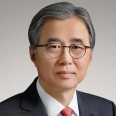In late February, the People’s Republic of China (“China”) revised its “State Secrets Law”. The revision expands the range of “state secrets” beyond the previous law, extends the application to include the advanced technology industry, and enhances security measures around military facilities. Amid the US-China strategic competition, many states are actively safeguarding advanced science and technology information, recognized as vital for future growth. Both the United States and China are wary of potential technology leakage, which makes China’s recent action seem rather typical.
The United States has also been striving to prevent the leakage of technology to China through the implementation of various bills and government policies. Since the early 2010s, under the Obama administration, the United States has consistently emphasized the risks associated with technology leakage and appropriation by Chinese companies, a concern that was further discussed and met with vigorous responses during the Trump administration. In January 2019, the United States Department of Justice brought charges against the Chinese company Huawei, including allegations of stealing trade secrets. In February 2020, the Federal Bureau of Investigation (FBI) investigated over 1,000 cases of technology theft linked to China, leading to the apprehension of 24 individuals in 2019 and 19 individuals in 2020.
The “State Secrets Law” of China may be viewed as a logical reaction to the measures taken by the United States against China. However, the concern arises from the possibility of the law expanding the interpretation of “secrets” too broadly, thereby posing a risk of causing harm to innocent individuals. Article 64 of the supplementary provisions of the “State Secrets Law” mandates that “Organs and units are to apply work secrets management measures and employ the necessary protective measures for matters generated or obtained by organs or units in the course of performing their functions that are not state secrets but would cause a definite adverse impact after leaking”. This ambiguity in determining what constitutes “matters generated or obtained in the course of performing their functions”, which could also be referred to as “work secrets”, raises concerns about the arbitrary application of the law by Chinese authorities.
China has a history of triggering international concerns due to arbitrary law enforcement, exemplified by the revised “Counterespionage Law” in April 2023. Under this law, China has regulated and enforced activities classified as “espionage” to include the stealing, prying into, purchasing, or illegally providing other documents, data, materials, or items related to national security and interests in addition to “state secrets” and “state intelligence”. Subsequently, Chinese authorities conducted raids on multiple American consulting firms including Mintz Group and Bain & Company, accusing them of gathering internal information within China, while also arresting an employee of a Japanese pharmaceutical company on charges of espionage. In 2020, China implemented the “Hong Kong National Security Law,” which carries the potential penalty of life imprisonment for offenses including secession, subversion, terrorist activities, and collusion with foreign entities to undermine national security. At present, 47 politicians, scholars, and activists have been detained or prosecuted on allegations of subversion related to their participation in an informal primary election.
China’s “State Secrets Law” can also be used as a tool to oppress the freedom and human rights of its own citizens, while exerting diplomatic pressure on other countries that do not meet Chinese value and standards, and holding their citizens hostage. The unilateral actions of President Xi and Chinese Communist Party appear to be an attempt to maintain a one-party dictatorship by promoting their achievements and strengthening its control over people. Is such seized power really beneficial for President Xi and his Party? History shows the ultimate end of dictators who monopolized and sought permanent power, but there were no dictators with a happy end. They were always anxious, could not trust anyone, and only brought about the downfall of state system. When North Korean leader Kim Jong-il met Honorary Chairman Chung Ju-young, he said, “When I sleep, I dream of being stoned. The first time was by the Americans, the second was South Koreans, and the third was North Koreans throwing stones at me.” What is President Xi dreaming of?
As the US-China strategic competition intensifies, China’s unilateralism may become stronger, and China may use its laws to increase pressure not only on the US but also on other countries. Considering this, we also need to prepare countermeasures. First of all, institutional mechanisms must be strengthened to prevent increasingly severe technology outflows to China. We must strengthen legal punishment such as imposing punitive damages on companies and individuals, while reexamining our government and private security systems. In case China retaliates by using the “State Secrets Law” or “Counterespionage Law,” we must reinforce education programs to caution our Korean tourists, businessmen, and local students.
It is also important to point out that Chinese laws, including the State Secrets Law, do not comply with international standards and universal values, and thus we need to form solidarity with like-minded countries. We must emphasize this with international solidarity that the revision of various laws and regulations that China is currently pursuing not only contradicts Article 33 of the Chinese Constitution, which states that “the state shall respect and protect human rights,” but also undermines China’s international reputation and status. What would President Xi think of the “dictator trap,” which states that the longer the dictators cling to power, the more they purge those who challenge them and suppress dissenting opinions, ultimately leading to the downfall of their own leadership?
* The view expressed herein was published on March 20 in The Chosun Ilbo and does not necessarily reflect the views of The Asan Institute for Policy Studies.

 Facebook
Facebook Twitter
Twitter